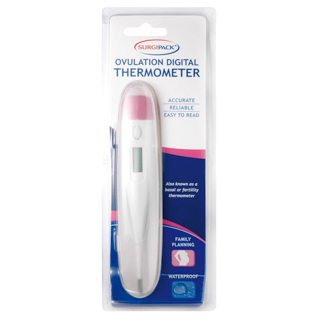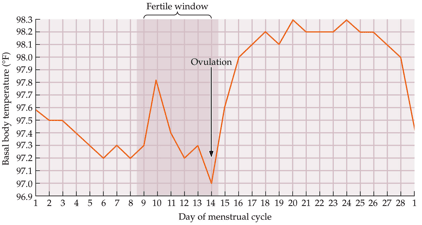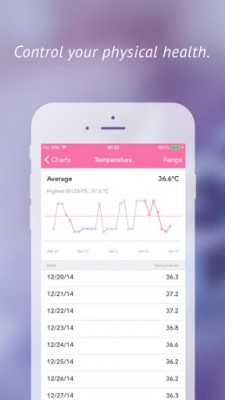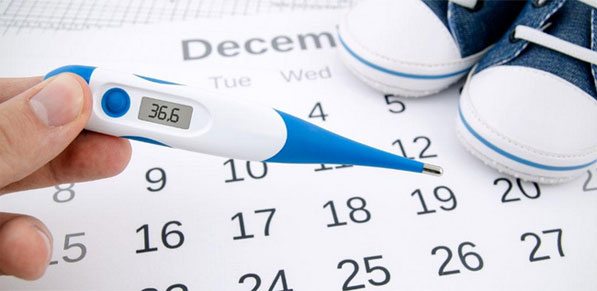Some lucky women may conceive almost as soon as they start trying, whilst for others it may take longer. One way to increase the probability of pregnancy is to track your fertility cycle covered in one of my previous blogs. An additional method is to chart temperature changes during the month using Basal Body Temperature.
What is Basal Body Temperature (BBT)?
BBT is your lowest body temperature, which occurs before you get out of bed. A woman’s temperature fluctuates with the onset of ovulation and there is a spike before ovulation.
How do I measure BBT?
BBT is best measured with a digital basal thermometer first thing in the morning. A basal thermometer records temperatures in smaller degree increment changes verses fever thermometers. Methods to measure BBT include: vaginal, rectal or oral route.
Basal thermometer we recommend:

Surgipack 6335 Ovulation Digital Thermometer
How are temperature changes linked to my ovulation?
Before ovulation, a woman’s BBT is usually in the range of 97.2 to 97.7 degrees Fahrenheit or 36.2 – 36.5 degrees Celsius. Following ovulation, BBT increases by about half a degree in almost all women. Woman’s hormonal changes, post-ovulation, trigger an increase in BBT, which lasts until the next period. If a woman becomes pregnant, her temperature will stay elevated into the first trimester.
It is important to note that once the temperature rise happens post-ovulation, you have already missed your chance to become pregnant.
By recording your temperature every day over several cycles, a pattern should form similar to the chart below, narrowing down your ‘fertile window’.

How do I do it?
- Begin taking your temperature on the first day of your period.
- Take it at about the same time every day.
- Don’t do anything before you measure your temperature – move around, eat, drink.
- You can measure your temperature various ways, but oral measurements are the most convenient.
- Your measuring method and thermometer device needs to be the same throughout the cycle.
- Record your temperature everyday. Fertility apps are great for that – you just plug in the number and it charts it for you.
Chart from our recommended app – Monthly cycles:

Final word of advice …
Whilst BBT charting is a useful technique to boost the chances of conceiving, it not 100 percent accurate. Some women may struggle seeing the pattern in their recorded temperatures.
Furthermore, this technique may not be suitable for some women. If ovulation occurs at different times in your cycle from once month to the next, the BBT chart may not be effective way at predicting when you’ll ovulate.
Nevertheless, it is a cheap and a non-invasive method. So if you are willing to put in a little effort why not give it a go!
Article from: www.fertilitypharmacy.com.au
